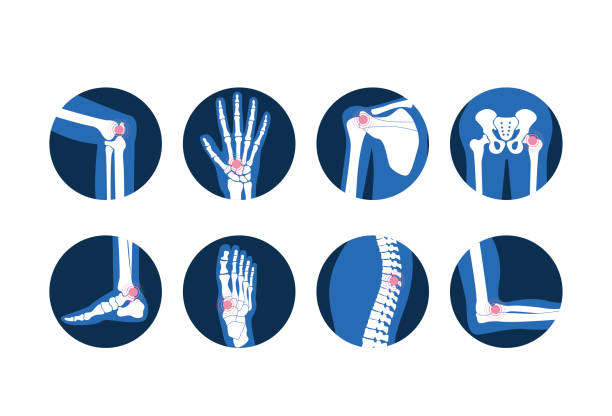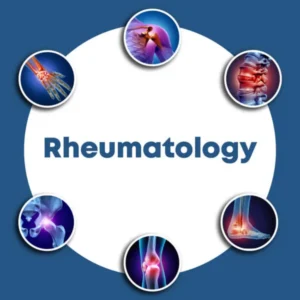Rheumatology
Rheumatology is a medical specialty concerned with the assessment and management of inflammatory and immune-mediated conditions that involve the musculoskeletal system (joints and supporting structures), and inflammation and autoimmune disease that may affect a variety of organs and tissues.
This includes diseases like:
- Rheumatoid arthritis
- Psoriatic arthritis
- Ankylosing spondylitis and axial spondyloarthritis
- Other types of spondyloarthitis such as reactive arthritis and arthritis related to inflammatory bowel disease
- Gout and pseudogout (CPPD)
- Systemic autoimmune disease including systemic lupus erythematosis (SLE, lupus), Sjogren’s syndrome, scleroderma, and autoimmune muscle diseases including polymyositis and dermatomyositis
- Polymyalgia rheumatica and giant cell arteritis (GCA, temporal arteritis)
- Vasculitis such as granulomatosis with polyangiitis (GPA, Wegener’s), eosinophilic granulomatosis wirth polyangiitis (eGPA, Churg Strauss), and Behçet’s syndrome
- Auto-inflammatory diseases (adult-onset Still disease, familial Mediterranean fever, CAPS)
Rheumatologists provide advice on the diagnosis and management of non-inflammatory conditions such as osteoarthritis, bursitis, degenerative spinal disease, primary Raynaud’s syndrome, hypermobility syndromes (Ehler Danlos) and chronic pain syndromes (fibromyalgia, central sensitisation). Once diagnosed, these conditions are often managed in collaboration with GPs, physiotherapists, pain management services and orthopaedic surgeons.

You will need a referral from your GP, physiotherapist or health provider to see our Rheumatologist.



